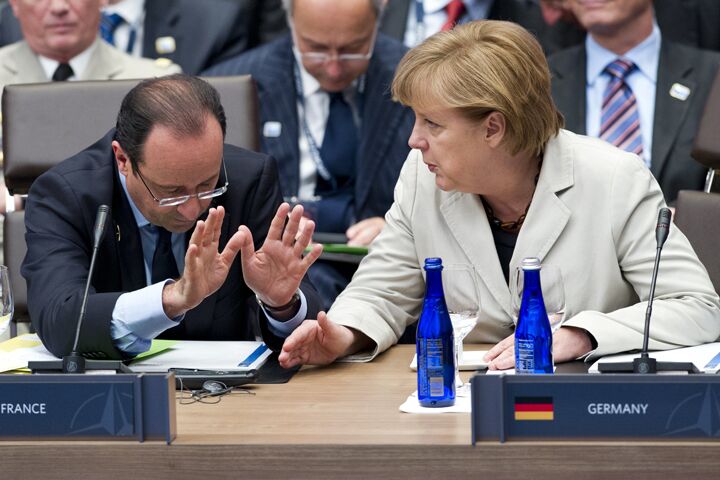
Germany Strikes Back
The French are trying to forge an alliance against Germany. For the first time since the start of the crisis, it appears to some the Germans may no longer be in control of Europe.
François Hollande, the new president of France, has taken to the offensive. Unlike his predecessor, he does not believe in the Franco-German alliance (with France now the junior partner) that has governed the European Union from its creation. He wants to open Europe up again and use the EU for its stated purpose—to keep the Germans in check.
Long before his election, the French president gave the impression that he wanted a showdown with Germany. “So many people in Europe long for our success! I don’t want a Europe of austerity, where nations are forced on their knees,” he told his supporters.
He is now making good on his rhetoric and boldly cobbling together an alliance of nations and EU officials to help him.
After taking office, Hollande repeated that France would no longer submit to the German plan for structural reforms designed to remake Europe after the Teutonic image. He would not stand by to see state-owned businesses privatized, unions emasculated, the welfare state curbed—and German austerity imposed upon Europe.
“We were not in the election in order to get a European Union president called Frau Merkel who decides the fate of all others,” said Benoit Hamon, spokesman for Hollande’s Socialist Party, on Sunday.
Then last week, Hollande issued his strongest attack yet by calling for real euro bonds, not just “project bonds” to pay for European infrastructure projects. And he says he won’t sign any fiscal pact unless he gets some element of “growth” in it—by which he means some new way to spend more money.
Hollande has made a calculated decision. He is gambling that Germany won’t just walk away from Europe—that Germany realizes a breakup of the eurozone would mean the reintroduction of the franc, lira, drachma, currency devaluations, trade barriers, and all that. He knows that German industrialists—those funding both Angela Merkel and her opposition—realize that if Germany were to leave, their European export markets could collapse.
And one wonders that if deep down Hollande doesn’t know that now is the last chance Europe has to curb German dominance, before Germany’s military catches up with its economy.
But as heroic—or otherwise—as Monsieur Hollande may be, it is too little, too late.
At the May 23 EU summit, Chancellor Merkel was strangely quiet. She seemed content to let her Fin and Dutch allies argue against the French plan. Some took it as a sign she would take France’s provocation lying down.
It appears that it was just the calm before the German storm. “Merkel prepares to strike back against Hollande,” Der Spiegel reported on Saturday. “The fight has only just begun.”
Former German Finance Minister Peer Steinbrueck may have revealed Germany’s plan of attack. In what was a thinly veiled threat, Bloomberg reports he warned that President Hollande’s proposals may have an impact on France’s credit rating.
“Investors and rating companies will naturally take a close look at the course France sets,” Bild quoted Steinbrueck as saying. French proposals to lower the retirement age and tax top-earners at a higher rate, “can have consequences for France’s credit rating.”
In other words, keep pushing and you might find that you are in the same boat as Spain and Portugal. And we will do our best to help put you there.
In January, Standard & Poor’s downgraded France’s aaa credit rating to AA+. Moody’s and Fitch (which is headquartered in France) still rate France as triple-A, but probably not for long now Germany is in motion.
As one European nation after another faces debt collapse, the calls for Germany to backstop the economic union will grow louder and louder. The calls for Germany to endorse a common debt market and other financial integration will also grow. And since France’s weak economy and greater debt load precludes it from acting as a rescuer, only Germany has any real power. Expect Germany to act—but only when the crisis peaks and it can exact the utmost from the rest of Europe in exchange for “saving it.”
